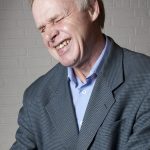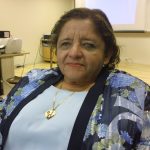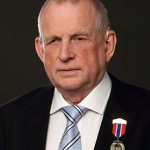WFDB was established in 2001 and consists today of 75 national and associated member organizations from 62 different countries from all corners of the world.
Relationships have been established with The World Blind Union (WBU), The World Federation of the Deaf (WFD), Deafblind International (DbI) and The World Association of Sign Language Interpreters (WASLI).
In 2007 the organization attained consultative status at the UN Economic and Social Council (ECOSOC) and is a member of the International Disability Alliance (IDA) where the WFDB President serves as a member of the board.
During its existence the WFDB has attained acknowledgement and recognition as the unified and legitimate world-wide representative and voice of people with deafblindness.
Our Presidents
WFDB aims to improve the quality of life of people with deafblindness worldwide, with the objective of achieving their equal rights and equal opportunities in all areas of society, to be a worldwide forum for the exchange of knowledge and experiences in the area of deafblindness, and to increase international solidarity among organisations of people with deafblindness.
The organization is governed by an Executive Council (EC) made up of 10 deafblind EC members; 4 officers: President, Vice President, Secretary General, Treasurer and 6 regional representatives: Africa, Asia, Europe, Latin America, North America and The Pacific.
Deafblindness, a dual sensory (sight and hearing) impairment, with a consequential loss of the ability to communicate with the surroundings without assistance, and the mobility to move freely around without assistance, puts people in isolation. Deafblindness excludes people suffering from it from society, from interaction with others. Consequences that more than often leads to both physical and mental challenges in day to day life.
 Only a few countries provide appropriate services to include persons with deafblindness in society today. Services like interpreter-guide services funded by the public.
Only a few countries provide appropriate services to include persons with deafblindness in society today. Services like interpreter-guide services funded by the public.
As the organization does not have a permanent, full-time secretariat, all work is being done by the EC members with more or less voluntary assistance from available helpers, mostly lacking formal education as deafblind interpreter-guides. With reference to the section above it makes the job even more challenging and time-consuming than it should be. Our progress is slow.
Among our objectives in our effort to combat this, and advocate towards appropriate service for people with deafblindness is having deafblindness and the causes of deafblindness included in the World Health Organization (WHO) International Classification Lists for Functioning and diseases.
These lists make the foundation for data gathered, most actions taken, and services provided for people with disabilities by both governments and support organizations. If deafblindness, and the causes, are not defined on these lists statistics will not be correct, and persons with deafblindness will seem invisible in the big picture.
We work continuously to make persons with deafblindness visible in all areas of our advocacy work, also towards the UN and state parties through our participation in IDA.
On regional level we have a strong connection, and cooperate actively with The European Deafblind Union (EDbU), The African Federation of the deafblind (AFDB), The Latin American Federation of deafblind people (FLASC) and trough these organizations contribute to build both capacity and ability to act as self-advocates.
By working on political levels as well as supporting our national and associate member organizations we strive to achieve our ultimate goal: to put persons with deafblindness in the driver’s seat in the global process of securing a place for us in the global society, a place promised by the UN CRPD, Post 2030 Agenda and the Sustainable Development Goals(SDGs) that can be summarized like this: We are all equal, we have equal rights and the state parties to the UN are responsible for facilitating all necessary services based on our real needs and thus including us in all parts of society, regardless of our disability and enabling us to fulfill our full human potential.
The principle is: Nothing about us without us.
Membership and application for membership
We have different kinds of membership:
- National membership is representing the population of people with deafblindness in their country. Each country can only have one national member, and the board of the organization has to have at least 50 % persons with deafblindness.
- Individual membership is open forindividual persons with deafblindness, not representing the population of persons with deafblindness in their own country. Individual members have the right to speach in the GA, but not vote.
- Associate membership is open to individuals, organizations and instituations who are in agreement with the aims of WFDB.
- Sponsoring membership is open to individuals, organizations and instituations who want to support WFDB financially.

If your organization is interested in joining WFDB, or cooperating with us, please fill out the appropriate application for membership and submit it to the below contact address. In case of difficulties in downloading the forms or questions about type of membership, please contact us at the address below (or fax, or e-mail) and state:
- Name of the organisation
- Name and position of contact person
- Official mailing address, telephone, fax, e-mail address if any.
- Type of organisation (organisation of persons with deafblindness, support organisation, parents’ organisation … ).



